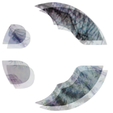|
Bringing together seminal figures from the field, BIOdesign creativeLAB will explore how biodesign is shaping the leading-edge of architecture and urban design. A drop-session on Clubhouse taking place between 18:00 - 19:00 BST on July 1st, the chair, I’ll be joined by peers Prof. Rachel Armstrong, Professor of Experimental Architecture at University of Newcastle and Executive at the Living Architecture Systems Group; Prof. Claudia Pasquero, Professor and Head of the Institute of Urban Design at University of Innsbruck, Director of the Urban Morphogenesis Lab at The Bartlett, UCL: Maria Kuptsova, Research Associate at the Synthetic Landscape Lab at the University of Innsbruck, Head of Design Innovation at ITMOTECH, and Curator of Digitocene.Net; and Annick Founder of Symbiont biocentric magazine, Researcher at the Henaff Lab, and Biodesign student at Genspace NTC.
Our session takes place in the Aterre Society club on the app. We have spare invites for Clubhouse for those wanting to join us, but not yet on the app. For updates follow me here on the app.
0 Comments
On June 5th I had the pleasure to join Prof. Claudia Pasquero, Dr. Marco Poletto, and their ecoLogicStudio research partners from the Urban Morphogenesis Lab at The Bartlett and the Synthetic Landscape Lab at Innsbruck University, Oscar Villarreal, Eirini Tsomoukou, and Korbinian Erzinger, together with Neil Leach for the Bio.Bio.Bot talk, as part of the DigitalFUTURES series. Exploring the studio's explorations at the edge of ecology, biology, architecture, and urban design, our discussions centred on their latest work, which shown as part of the Future Assembly at the Venice Biennale 2021 interrogates a new type of biological intelligence system applied to the urban realm. In this system, algae cell behaviour is the core biological engine transferring distributed intelligence across a biotechnological architecture. But, complex though the construct is, an experiment in domestic cultivation of the urban microbiome, the studio's exhibit for the Biennale expressed its key tenets in a visceral, tangible, and relatable way. The product of over a decade's bio-digital research, Bit.Bio.Bot brings together several of the studio's computational design methods [BIT], its proprietary fabrication techniques [BOT], to enable the implementation of its microbiological cultivation protocol [BIO]. Its interconnected systems include a living cladding system composed of ten 'PhotoSynthEtica curations' which both serve to enable the micro-algae growth with the aid of a bio-gel medium, while also providing screening and shading; a vertical garden which, 3m tall and containing the proprietary domestic algae farming system, which is made of lab grade borosilicate glass and 3D printed bioplastic components in the form of 'Bio-Bombolas', facilitates intensive algae farming; and the 'Convivium', which is a space for sharing and consuming the edible fruits of the experimental biolabours. The latter is comprised 36 bespoke pieces of crystal glassware designed for the consumption of the Chlorella and Spirulina produced by the urban farming system, which are arranged across a purpose-built table. Once the Biennale is over the installation will be relocated to Tyrolean landscape, where it will become an educational algae garden focused on the issue of future food. Watch our discussions in the YouTube recording of the talk below, and find out more about the DigitalFutures project here. Introducing the inaugural report in the Open Foresight Series, which titled 'Innovation Against All Odds' discusses seminal shifts shaping innovation at the edge worldwide. Independent, published open-access on several platforms under a Creative Commons Attribution-NonCommercial-ShareAlike 4.0 International License (CC BY-NC-SA 4.0), 70-pages and over 20,000 words, the work features unique insights from renown thought leaders spanning myriad fields. Issues discussed in the report include, among others, the nature of systemic change and how it impacts upon the innovation process; neurodiversity and diversity more generally, and innovation; transdisciplinary research and practice, and the splicing of fields; changes catalysed by the pandemic, and why some are likely here to stay, but others aren't; how artificial intelligence, big data and other technological advances are illuminating the risks and opportunities for innovators like never before; and drivers of evolution and extinction in companies at all scales. Fourteen key trends are presented spanning areas including environment, materials, design, engineering, architecture, manufacturing, retail, distribution, work-life, community, education, socialising, and life goals, together with key questions and considerations that innovation-led businesses need consider now and in the years ahead. The report also presents three scenarios [find below] that frame some of the possible risks and possible opportunities here through mid-century, together with a recommend reading list. Individuals that kindly provided quotes and insights for the work include [in order of citation] Prof. Peter Frankopan, historian and author; Anna Simpson, Director of Flux Compass and curator of The Futures Centre; Soumaya Bhyer, Founder of Neuros; Prof. Andrew Adamatzky, University of the West of England; Dr. Kate Stone, Creative Scientist and Founder/CEO of Novalia; Dr. Robin Daniels, Managing Director of Red Pill Group; Nirav Patel, Chief Executive Officer, Framework; Paul Taylor, Innovation Coach at Bromford Lab; Mike Barry sustainable business champion and founder of MikeBarryEco; Dr. Mark Hinnells, Snr. Consultant at Ricardo Energy & Environment; Prof. Rachel Armstrong, University of Newcastle; Prof. Claudia Pasquero, UIBK/UCL and Cofounder of ecoLogicStudio; Kim Chandler McDonald, CEO of FlatWorld Integration and author; Dr. Mike Pitts, Deputy Challenge Director, Innovate UK; Oliver Health, Founder Oliver Heath Design; Valerie Bounds, Chief Strategy Officer, Aurora; Jane McMillan, fashion and textile designer and start-up coach; Nuno Silva, Chief Scientific Officer, UnifAI Technology; Marie-Claire Daly, Cofounder StreamGM; Anna Brettle, Founder/Business Development Director, Stellar; Prof. Andy Miah, University of Salford; Sam Bompas, Cofounder, Bompas & Parr; Anj Prof. Teyhou Smyth, Pepperdine University; Dr. Chris App, technology futurist and author; Dr. Stephen Law, philosopher and author; Kiran Pereira, Founder and Chief Storyteller, Sandstories; Dr. Kirsty Fairclough, Manchester Metropolitan University' Jacynth Basset, Founder of The Bias Cut and Ageism is Never in Style®.
Extract from Innovation Against All Odds: "Authored at the interface of disciples and demographies, this report is holistic in its methodology, rejecting siloed quantitative approaches of the all-too-quickly dateable kind, such as online surveys and spot-check polls. Drawing on insights from one-to-one conversations with individuals of whom the careers have been spent treading paths unknown to pioneer groundbreaking new ideas, inventions, and the industries they collectively manifest, together with review of data of copious kind, this work stresses the imperative for innovation led by highly informed choices on the part of businesses of every size, type, and location. Forewarned is forearmed, and particularly when working against umpteen odds. Though often presented as either the sum of exponentially expanding and invariably disconnected parts or one of many qualitatively distinct trajectories of which the outcomes sit at tangents, in practice not [always] theory, the future - or at least parts of it - is relatively predictable: history does often repeat itself, and it repeats itself because at the level of systems outputs are coupled to inputs and thus patterns tend to emerge.... an array of advancements both technical and conceptual are enabling more dots to be joined, and joined at speeds unthinkable in the past. The Internet now laden with often deeply conflicting accounts of possible near futures, this report is designed to disseminate what developments in not one, not two, but many disciplines collectively suggest to be key considerations that they working in business and beyond need consider in the immediate years ahead." Read in full on Issuu here or download on Academia or Researchgate. On June 2nd between 17:00 - 19:00 GMT Professors Without Borders think tank and Lecturers Without Borders will cohost 'Rebooting STEM: New Era, New Curriculum' to discuss aspects of STEM that were traditionally neglected, yet have proved particularly relevant during the COVID-19 pandemic: soft skills, ethics, and credibility.
The first session, titled 'Improving Soft Skills in STEM', will be moderated by virological, science comms educator, and Lecturers Without Borders scientists co-ordinator, Eugenia Covernton and feature speakers Meenakshi Narain, Professor of Physics at Brown University, member of CERN Laboratory, and fellow of the American Physical Society; Tram Anh Nguyen, Co-Founder of CFTE, Board Advisor of EDHEC, and Industry Fellow at Imperial College; and Nikolena Christofi, PhD Student at IRT Saint Exupery, and Soft Skills Trainer with the Board of European Students of Technology. The second session, titled 'Ethics and Credibility in STEM', will be moderated by Victor Warlop Piers de Raveschoot, researcher in Nanomaterials, Photonics, Condensed Matter Physics, and Magnetism at Stanford University, and feature speakers Rajan Kumar, Lecturer in Materials Science and Engineering at Stanford University; Oliver Geffen, Epidemiologist and Surveillance Scientist Consultant for the WHO, and Visiting Researcher at Imperial College, and myself. Find further information on the speakers' credentials here. Extract from the conference programme "The conference explores the STEM curriculum and makes suggestions for a 21st century reboot including a focus on soft skills and ethics. It will be divided into 2 panels of 3 experts, each panel lasting 1 hour. The panels start with a short introduction by each of the panellists in which they describe their background and expertise, followed by a 40-minute Q&A with the moderators and the audience. Panel 1: Improving Soft Skills in STEM Being a scientist or engineer involves much more than being able to perform experiments and interpret data. It involves being able to communicate effectively, show empathy, creativity, flexibility, and open mindedness. These soft skills are hard to acquire and sometimes even harder to evaluate. We have all heard that "soft skills are important", but exactly why is that so? How do we evaluate our own abilities in order to improve? How do we motivate others to improve their soft skills when they may not even know there's a problem? And how do we help without imposing our own views, biases, and judgements? This panel will aim to address and debate over these questions and propose ideas for action. Panel 2: Ethics and Credibility in STEM The Covid-19 pandemic showed some of the best and worst of the scientific world: while millions of scientists around the world openly shared their research and collaborated towards finding treatments and ways to prevent new infections and deaths, several big scandals arose involving forged results, badly designed clinical trials and other types of misconduct. How can we, as a scientific community, discourage "cheating"? What are the factors that may be tempting scientists to commit scientific fraud? And how do we recover the public faith in science when scandals resonate louder than the "good science"? In this panel the focus will be on how to combat the speed of misinformation by encouraging ethical science and by increasing the credibility of scientists in the public eye." An event open to the wider scientific and research community, registration is free, but advanced booking is necessary. Find out more and book a place here.
Technological and wider advances in the sciences necessitate scientists in and beyond the life sciences develop new skills and knowledge in areas including statistics, programming, automation, experimental design, and much more. Added to this, shifts more generally are influencing how, where, and when research is conducted. So how might the lab of the future work, and how can both established and emerging researchers equip themselves for the new scientific frontier?
Back in March I joined Computer-Aided Biology's Dr. David Kirk and Dr. Fane Mensah in conversation for the CABTtalk podcast series. We cover issues as diverse as science ethics, communications, commercial applications, how external sectors and disciplines are and may impact on the sciences, to name a few. Hear our conversation here and find out more about Computer-Aided Biology here. |
AuthorMelissa Sterry, PhD, chartered design scientist, systems theorist, biofuturist, and serial founder inc. Bionic City® Bionic CityAsking the question "how would nature design a city" since 2010.
Archives
October 2023
Categories#bionics
#biotech #biodesign #bioscience #biomimetics #biotechnology #bioengineering #bioinnovation #bioaesthetics #biorevolution #bioenterprise #biosystems #biocreative #biofuturism #biofutures #biocentric #biofacture #biotecture #biovation #biofiction #biourban #biocities #biolab #bioart #STEM
#STEAM #STEAMED #STEMcomms #STEAMcomms #STEAMEDcomms © Bioratorium Limited & Melissa Sterry
2021 All Rights Reserved |
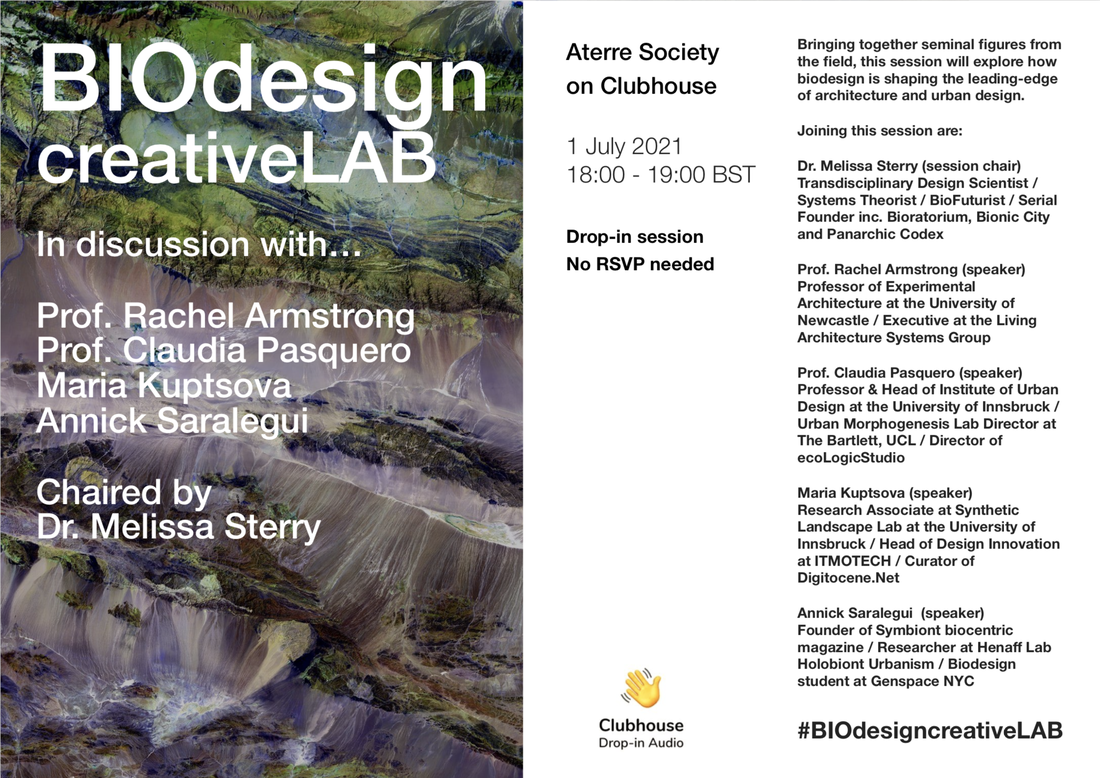
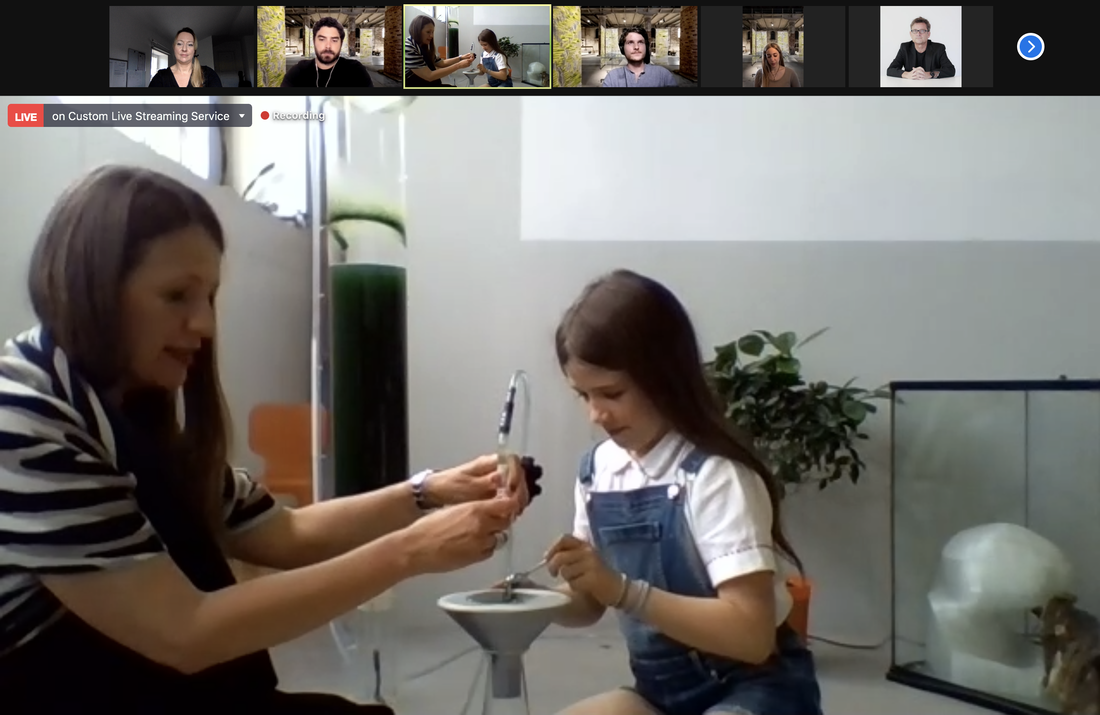
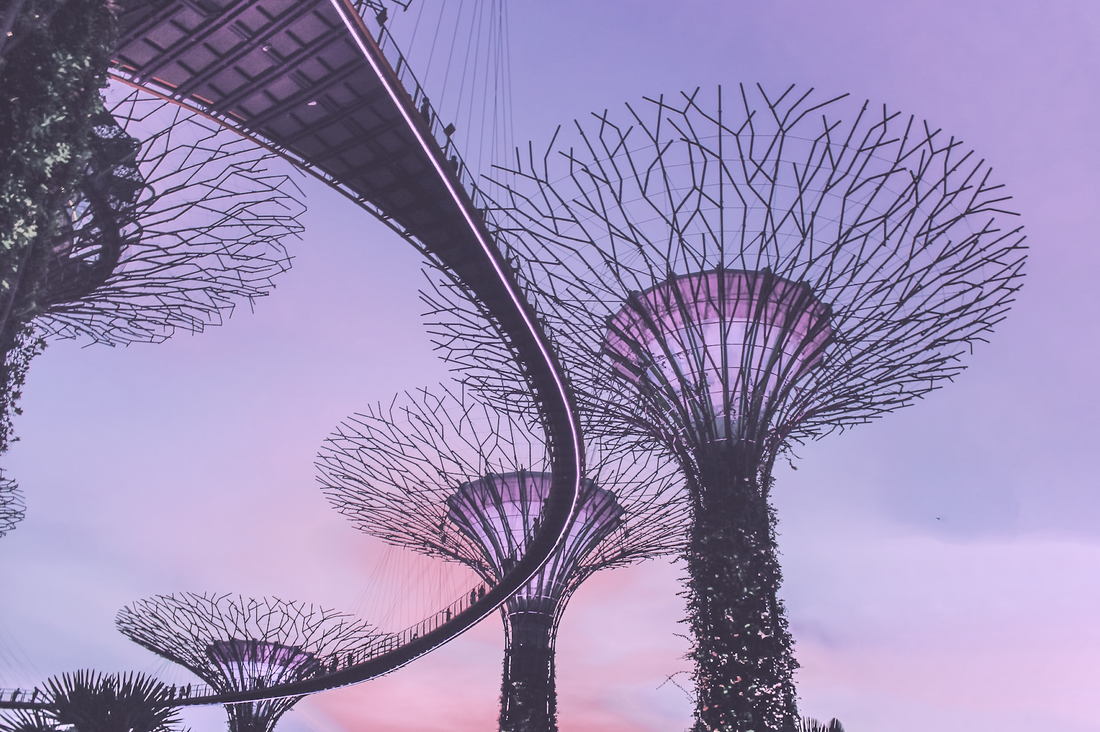
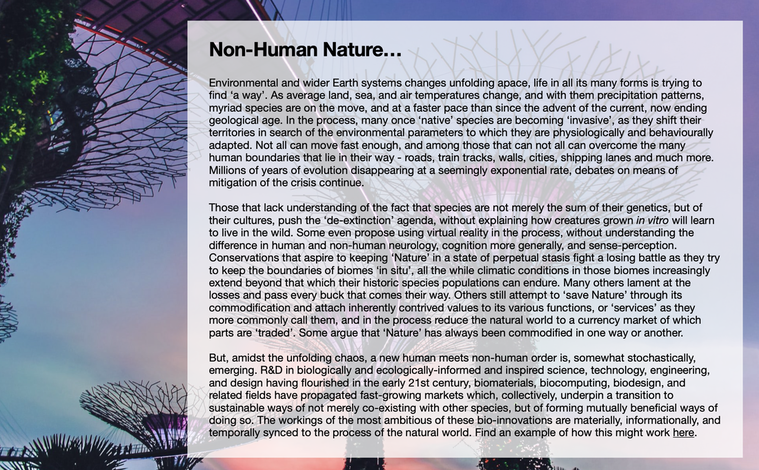
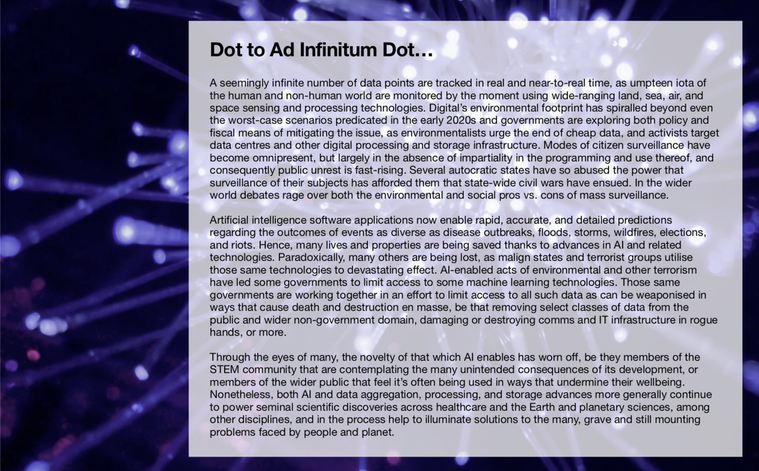
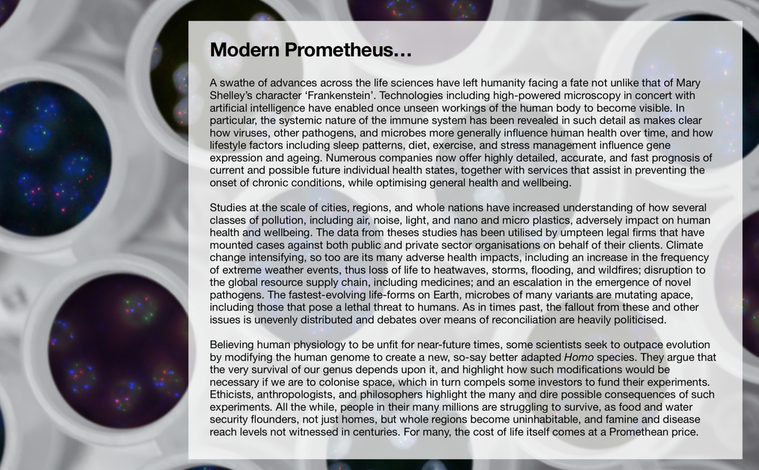
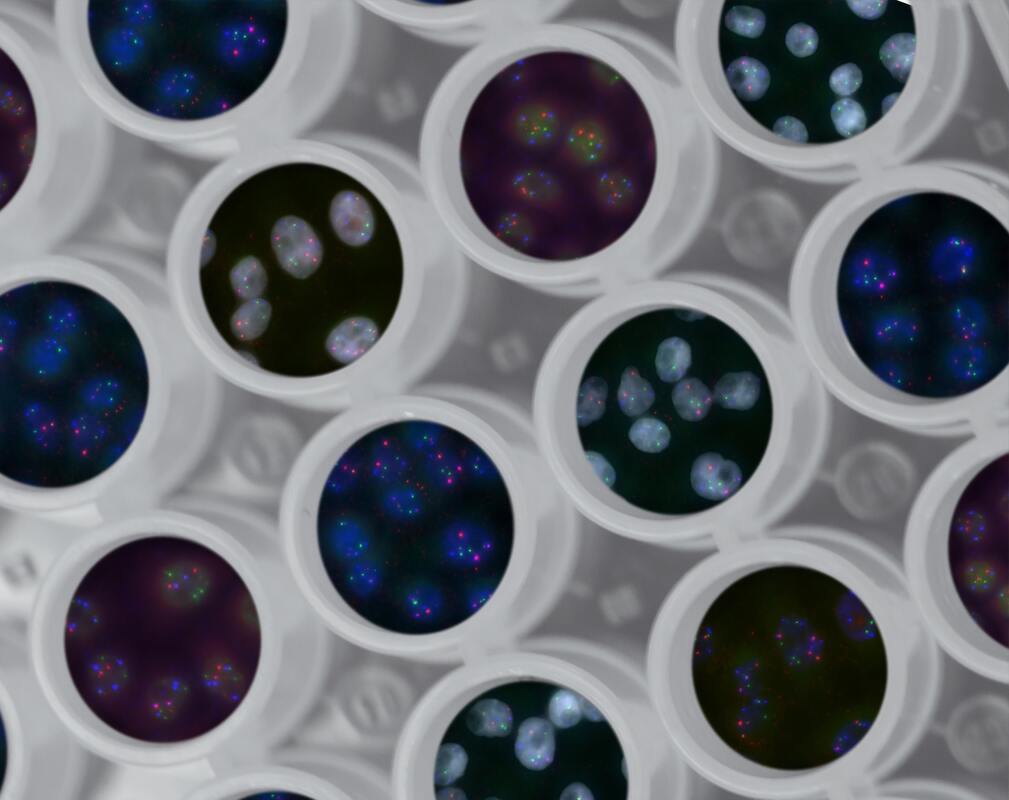
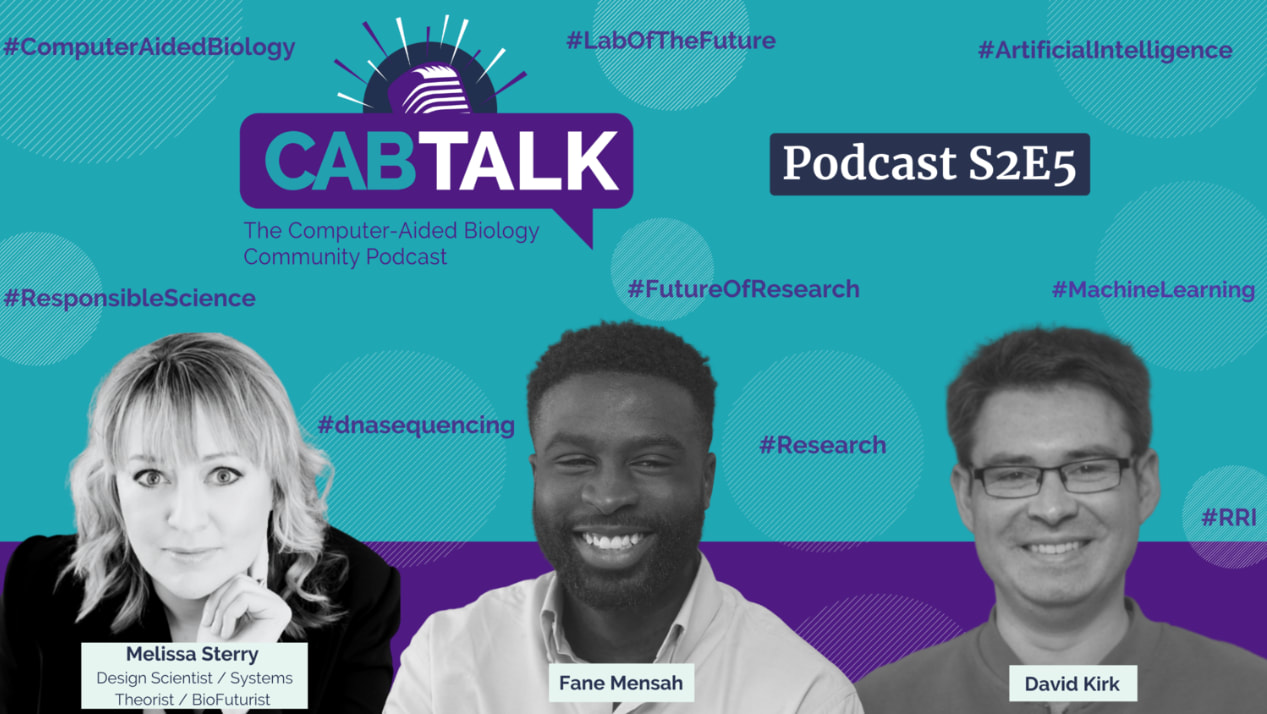
 RSS Feed
RSS Feed
